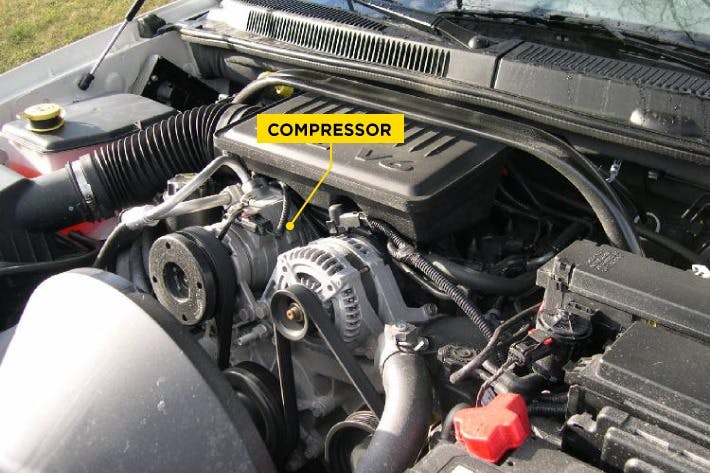What is PAG and Ester oil? Do I need them to recharge my A/C?
Table of contents
We get this question often. The fact of the matter is unless you are changing out the or another component in your A/C you probably will never have to worry about recharging PAG and Ester oils. That being said, let’s take a look at these A/C compressor oils in more detail. On this page we’ll cover:
- What is PAG oil
- What is Ester oil
- How to find the right oil specifications for your car
PAG Explained
PAG is actually an acronym for Polyalkylene Glycol, and it is a synthetic oil used in A/C systems to lubricate the compressor. Most newer model cars use PAG as the lubricant in the A/C system.
When people refer to PAG oil they typically refer to it in the following terms: PAG 46, PAG 100, or PAG 150. The numbers represent the viscosity of the lubricant just as “10W-30” or “10W-40” represent the viscosity of motor oil. Previously, in years gone by, these viscosity numbers were often associated with a particular car manufacturer. Ford A/C systems got one number and GM got another.
Today, the PAG oil needed for a particular system is determined solely by the compressor manufacturer. Denso, for example, makes compressors for a variety of automobile manufacturers so it is entirely possible to have the same PAG requirements for different makes of cars
To determine the right PAG viscosity and quantities for your car look up the specifications for your make, model, and year of car.
Ester Oil Explained
Ester oil is a synthetic lubricant. Ester molecules are very stable and have excellent performance characteristics in both high and low temperatures.
It is typically used in systems that have been retrofitted to R-134a, and it comes in only one viscosity, so it does not contain the viscosity numbers associated with PAG oils. It is used in retrofit systems primarily because its chemical properties do not change when it comes into contact with the trace amounts of chlorofluorocarbons that are found in retrofitted R12 systems.
With the exception of a few European models, vehicles newer than 1995 typically do not contain ester oil as the lubricant for the A/C system. Still, it is imperative that you look up the lubricant specifications for your particular car to determine the oil quantity and replacement type.
Summary
If you’re not sure which oil specifications are right for your vehicle, head over to our port finder. Click on the specification link to view lubricant specifications and quantities for your particular vehicle.




